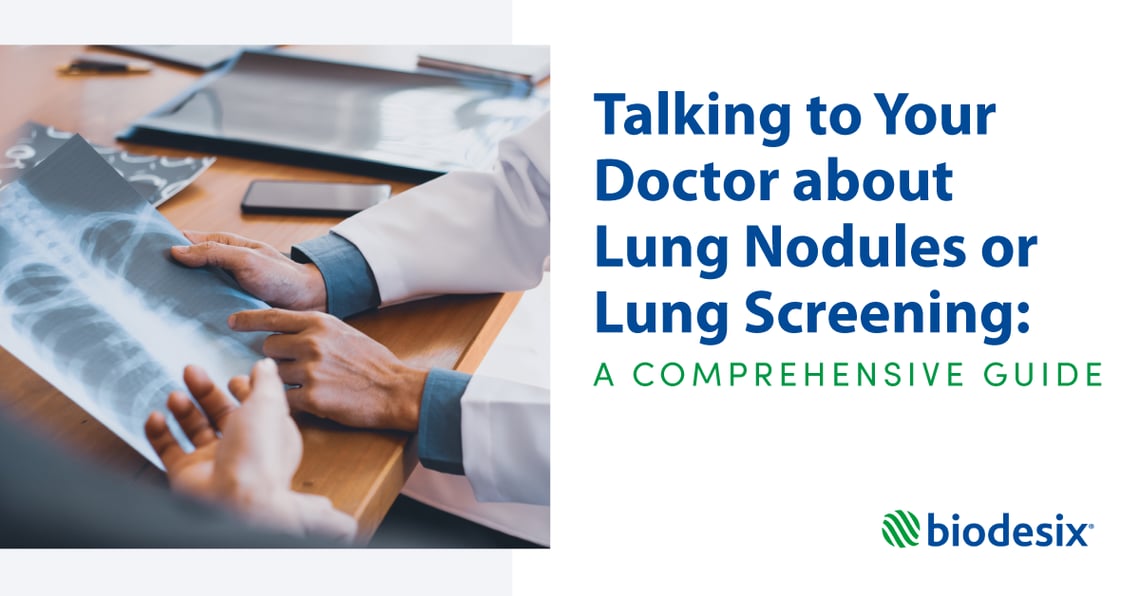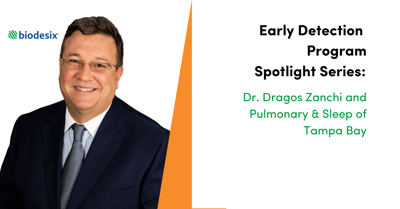A Comprehensive Guide to Lung Cancer Screening
Initiating a conversation with your physician about health concerns can sometimes feel daunting. Whether you've had a recent diagnosis or you're considering a preventive lung screening, having the right set of questions and an understanding of the topic can ease the process. This article aims to provide guidance on effectively discussing lung nodules and lung screening with your healthcare provider.
Understanding the Importance of Lung Screening
Before diving into the conversation starters, it's crucial to understand why these discussions are so pivotal. Lung screening requires annual imaging of your lungs to look for abnormalities, but even if something is found it usually is not lung cancer. Often, lung nodules, or spots on your lung, are found from screening and it is important that you talk with your doctor and pursue the subsequent next steps to understand the nature of the finding.
Preparing for the Conversation
- Educate Yourself: Having a foundational knowledge of lung nodules and lung screenings will empower you during your conversation. This doesn't mean you need to know everything, but a basic understanding will help.
- Write Down Your Concerns: It's natural to forget things during a medical appointment, especially when you're feeling anxious. Jot down any symptoms you've noticed or questions you have.
- Be Honest: Transparency about your health history, including smoking habits, occupational hazards, or family history of lung conditions, can help your doctor provide tailored advice.
Questions to Consider Asking Your Doctor
- About Lung Screening:
- Am I a candidate for a lung screening?
- How often should I get screened?
- What does the screening process involve?
- Are there any potential risks associated with the screening?
- How soon will I receive the results, and how will they be communicated?
- What size is the nodule and where is it located?
- Based on its appearance, what are the chances it could be cancerous?
- What tests or follow-ups would you recommend?
- How often should I come in for check-ups regarding the nodule?
- Are there any symptoms I should be particularly watchful for?
- About Diagnostic Tools:
- I've read about tests like Nodify Lung for further insight into lung nodules. Is this something that could be beneficial for me?
- Are there any other advanced diagnostic tools or tests that could be relevant?
After the Conversation
- Stay Calm: It's natural to feel a mix of emotions after discussing health concerns. Remember to take deep breaths and give yourself time to process the information.
- Seek Additional Resources: Patient support groups, online forums, or informational pamphlets can provide additional insight and support.
- Stay Proactive: If your doctor recommends follow-up appointments or further tests, make sure to schedule them promptly. Staying proactive about your health is one of the best things you can do.
Conversations about health can be overwhelming, but they're a vital step in ensuring you're well-informed and on the right path. Approach the discussion with openness and remember that your doctor is there to guide and support you. Your health and peace of mind are paramount, and open dialogue is the key to both.
Topics: Patents


